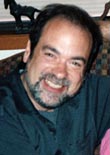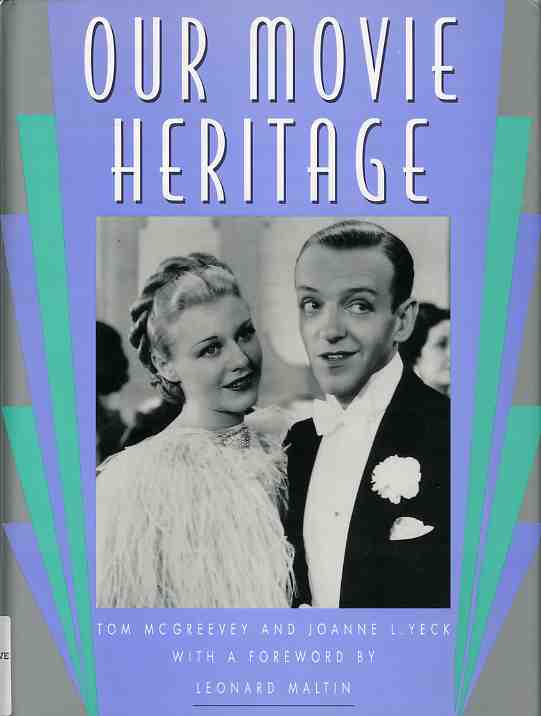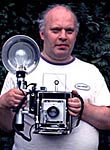|
|
This topic comprises 2 pages: 1 2
|
|
Author
|
Topic: Film Preservation school...HELP!
|
|
|
|
|
|
|
|
|
|
|
|
|
|
|
|
|
William Hooper
Phenomenal Film Handler
Posts: 1879
From: Mobile, AL USA
Registered: Jun 99
|
 posted 11-15-2004 02:29 AM
posted 11-15-2004 02:29 AM





The best direct infromation would be to ask someone on the admissions staff what they look for on an application. HS, college or vocational background including chemistry or time working at institutions like libraries or museums? Probably background, personal pursuits including home canning or candy-making would be very attractive, since the preservation process involves pressure cookers & lots of sugar.
Getting a survey of what was on successful applications may not be possible, and asking admissions staff what they look for usually isn't very successful. Admissions folks like to think that they're open, objective & analytical, when actually they're primarily enjoying intuition. They reward themselves. Intuition is not ESP; it's a predominnatly unalytical process of assocition from an unexamined collection of tastes & insights from observation. There are lots of techs who are intuitive but you won't find them here - they don't like to & can't be particularly research-oriented & analytical. They mostly just do things the way they've seen worked before, or the way they liked. People who operate mostly intuitively can't tell you how they did something, how they knew something, & certainly how they figured something out, since the process was not research & analysis of a new problem. It's an old thing they recognized & are doing again the same way.
The next approach would be to understand that the admissions staff is looking for folks that fit in with the objectives of the program. A description of what a program is supposed to be is not particularly useful, since it's been chewed over & fluffed for public consumption & the institution's personal enjoyment. You get a better idea of what a machine is supposed to do by looking at the machinery. There's a page with the course topics at
http://www.eastmanhouse.org/inc/education/selznick_course_topics.asp
Non-typical features are:
History
Practice (Film handling & projection)
Chemistry (of photographic materials)
Management (of an archive)
Activities (Event programming)
Legal Issues (Copyright, etc.)
So you know that for whatever reason, in-depth experience with Practice (Film handling) isn't counting for diddly with them. Either most applicants have it, or they're looking for something else, possibly in addition. Start picking from the others to add to the application.
Home darkroom photography background would probably bump your chances up. Working (even as a volunteer) at a museum would, too. If you taught Saturday classes on home darkrooms at a free community activities program, you'd probably climb high - not the least because the admissions staff (we're educaTORS!) would identify faster &, relevant or not, think you're the stuff.
Working at a library, organizing & producing lectures on History of Film would suck up in the History & Activities categories, as well as stroke the admissions staff.
Don't ever forget that the machinery of admissions is the admissions staff, & amissions is a function of their own functionality. "I see that this applicant wassails, & although no one has said anything about this applicant, I would like to point out that *I* wassail, & know from personal experience that wassailing, although not directly related itself, fosters just the sort of talents & skills that are useful to a successful person in this field." Or golf, tatting, or breeding little rat-like dogs, or who knows. That's why applications are loaded up with goo in the "Interests" section.
You can also go the route of paying John Pytlak to infiltrate their organization & report to you on the distribution of things that are on applications that the admissions staff shoots through. That would provide the most useful information fastest.
| IP: Logged
|
|
John Pytlak
Film God

Posts: 9987
From: Rochester, NY 14650-1922
Registered: Jan 2000
|
 posted 11-15-2004 09:47 AM
posted 11-15-2004 09:47 AM





Of course, the Association of Moving Image Archivists (AMIA) would be an excellent resource:
http://www.amianet.org/
quote:
AMIA is the largest non-profit professional membership association for individuals and institutions concerned with the preservation of moving images. Incorporated in 1991, AMIA was established to advance the field of moving image archiving by fostering cooperation among those concerned with the acquisition, preservation, exhibition and use of moving image materials. With an international membership of over 750, individuals and organizations from a wide variety of constituencies are represented. In addition to its publication and education programs, AMIA holds an annual conference, develops and promotes standards, encourages fieldwide communication through its listserv, honors the work of archivists and archival organizations, administers a scholarship and fellowship program and collaborates with other institutions and organizations to design, promote and implement national moving image preservation policies and plans.
| IP: Logged
|
|
Leo Enticknap
Film God

Posts: 7474
From: Loma Linda, CA
Registered: Jul 2000
|
 posted 11-16-2004 01:53 PM
posted 11-16-2004 01:53 PM





Allison,
As a film archivist myself I'd say that joining AMIA would be an excellent move. The newsletter, journal and listserv will start to get you 'in the loop' with the moving image preservation world and let you build up a picture of what organisations hold archival film collections, why, where the jobs are and so on and so forth.
As for the Selznick School, I happen to know that it's a truly excellent programme, but it's not the only one. NYU and UCLA also offer film archiving masters' programmes in the USA. Were you to consider looking further afield, the University of Amsterdam offers a course which places a special emphasis on digital restoration (they work closely with the Nederlands Filmmuseum and Haghefilm), taught in English ... or you might consider the programme I took, which was at the University of East Anglia in Norwich, UK (that was the first ever formal film archivists' training programme, which took its first students in 1990).
Please feel free to email me off the forum if you'd like any more information or contact details.
| IP: Logged
|
|
|
|
|
|
|
|
|
|
|
|
All times are Central (GMT -6:00)
|
This topic comprises 2 pages: 1 2
|
Powered by Infopop Corporation
UBB.classicTM
6.3.1.2
The Film-Tech Forums are designed for various members related to the cinema industry to express their opinions, viewpoints and testimonials on various products, services and events based upon speculation, personal knowledge and factual information through use, therefore all views represented here allow no liability upon the publishers of this web site and the owners of said views assume no liability for any ill will resulting from these postings. The posts made here are for educational as well as entertainment purposes and as such anyone viewing this portion of the website must accept these views as statements of the author of that opinion
and agrees to release the authors from any and all liability.
|

 Home
Home
 Products
Products
 Store
Store
 Forum
Forum
 Warehouse
Warehouse
 Contact Us
Contact Us




 Printer-friendly view of this topic
Printer-friendly view of this topic






![[Cool]](cool.gif)

![[Embarrassed]](redface.gif)

![[thumbsup]](graemlins/thumbsup.gif)


![[Smile]](smile.gif)






